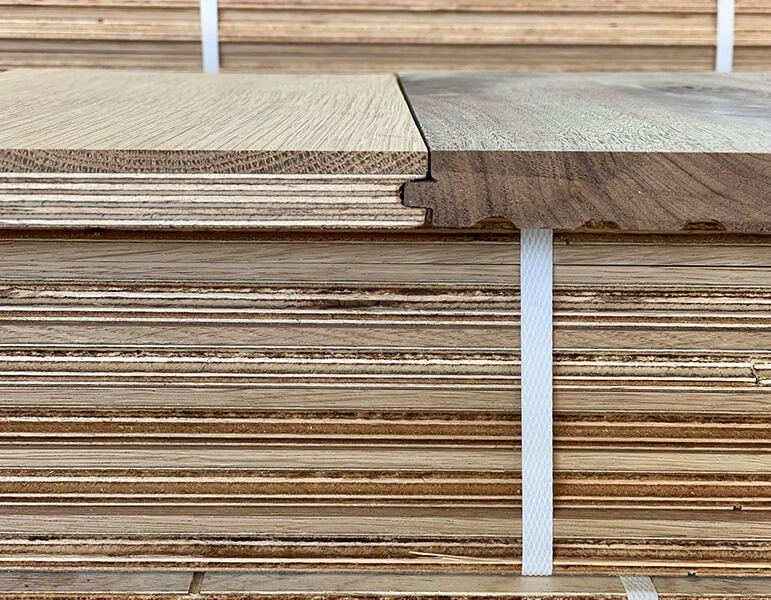
If you plan to enhance your home, grasp differences between solid and engineered wood floors. Solid wood is preferred for its durability and cost. Engineered flooring offers fantastic benefits and is crucial for lasting hardwood setups in specific cases.
Solid Wood Flooring: Crafted from tree planks, solid wood is less costly due to simpler processing. Lifespan depends on groove depth since there’s no veneer to sand through. The groove’s top may break when sanded down to 1/8″. Visible blind nail fasteners are possible. Solid wood is prone to moisture-induced changes, leading to cupping or gaps.
Engineered Wood Flooring: Made by layering thin wood sheets at 90-degree angles. It’s stable along the grain but not width. It’s similar to modified plywood, with varied quality due to flexible manufacturing. Let’s explore key factors distinguishing excellent from poor-quality engineered flooring.
Thickness:
A high-quality engineered product, built to last generations, should be at least 1/2″ thick, preferably 5/8″ thick. Anything thinner won’t provide enough wood for future re-sanding. On the other hand, a solid 5/8″ product should have a wear layer comparable to that of a 3/4″ solid wood product.

Wear Layer:
A reliable product should boast a wear layer equivalent to that of a 3/4″ solid product. In contrast, a low-quality product might have a thin or non-existent wear layer. This is because 5/8″ products possess a sufficiently thick top veneer (the uppermost wood layer) for multiple sandings. In contrast, low-quality products have ultra-thin veneers (1/8″ to 1/32″ or less), which can’t withstand sanding and wear out quickly. Typically, thin wear layer products are only available prefinished, as they can’t be sanded.

Still Unsure About Your Flooring Choice? No worries! When we visit your home to measure and offer a free estimate, we can bring samples of both types of flooring. This way, you can see the differences firsthand. We’ll discuss your specific flooring needs and recommend the best wood floor type for your project.
